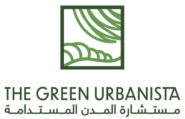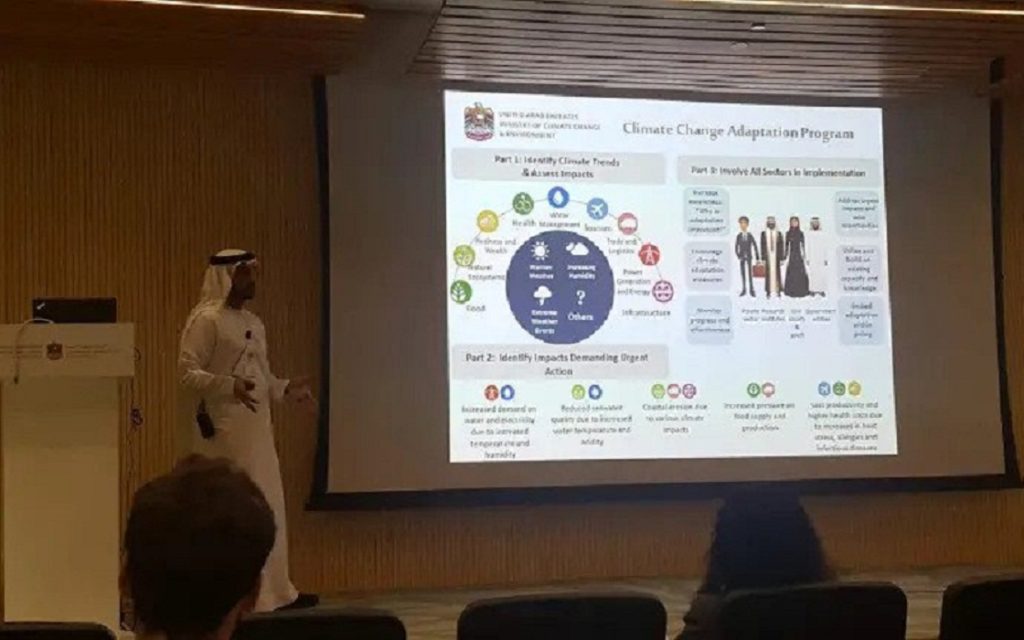Just over two years ago, I posted on the need for us to start taking adaptation seriously. At the time, I was unaware of any serious conversations on the topic in the UAE – a lot has changed in two years!

I was invited recently to attend a series of risk assessment and capacity-building workshops for Climate Change Adaptation hosted by the UAE Ministry of Climate Change and Environment (MoCCAE). I was impressed with the event, especially the level of awareness and expertise in the room.
The workshops were organized by sector (health, power, infrastructure, and natural environment) as a way of taking the recently published National Climate Change Plan forward. While I was only able to make it to the final workshop, I had the chance to review the outcomes of the other three workshops, which were all very informative.
The objective of the workshops was twofold: building capacity within local government authorities and stakeholders to tackle climate change adaptation and receiving feedback from professionals (both academics and practitioners) on the outcomes of the preliminary risk assessment for each sector. By organizing these participatory workshops and openly discussing climate change risks, MoCCAE has put the climate change adaptation agenda front and center and taken away much of the anxiety around the topic. This alone is an achievement to be celebrated.
There is no denying the uncertainty around climate change impacts, particularly in a region where data is scarce, and only a portion of it is shared. The approach taken by MoCCAE and its partner, the Global Green Growth Institute (GGGI), openly acknowledged this uncertainty and sought to work within its limits. “It is better to be roughly right than precisely wrong” was the motto of the day.
Having said that, it was exciting to find out about the ongoing climate change research being undertaken at various universities across the UAE. I remember looking for such research programs when I first returned to the UAE in 2007 and not finding a single one. During the workshop, I was introduced to impressive work from academics at UAE University, the American University of Ras Al Khaimah, and NYU Abu Dhabi, amongst others. This is, of course, in addition to the valuable and publicly-available research undertaken by AGEDI over the past years in areas such as habitat mapping and protection.
The most promising part of the workshop was the open and critical discussion which was not stifled but encouraged. Debating contradictory opinions, theories, and data sets is a fundamental part of knowledge creation and is a requirement for progressing our collective understanding of complex topics such as climate change which have scientific, economic, and ethical dimensions. From the extent of sea level rise to the impacts of desalination plants, the audience engaged in a mature discussion that was enriched by contributions from local researchers, practitioners, and policymakers.
As one of the attendees noted, perhaps what was missing from the debate was a stronger presence from the local communities, particularly the youth. My understanding is that these workshops are part of a year-long process to develop UAE-wide adaptation action plans. Additional stakeholder engagement will be undertaken before the documents are finalized.
A warm thank you to MoCCAE and GGGI for the invitation to attend and contribute to this work. I am optimistic that these sessions will lead to locally-grounded, implementable adaptation action plans and that they will help trigger awareness and action across the region.

